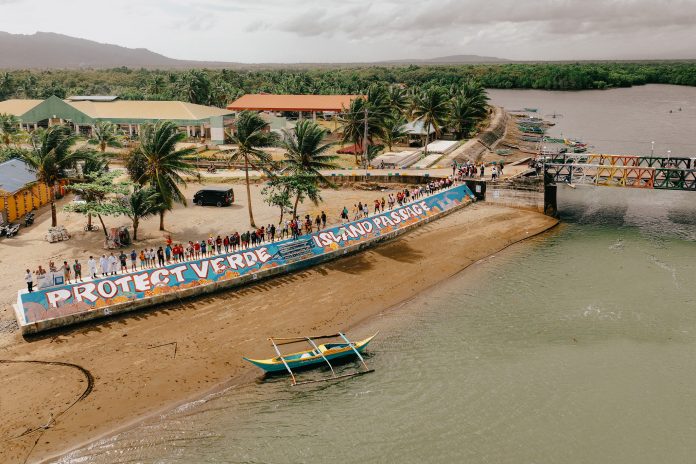The Center for Energy, Ecology, and Development (CEED) amplified calls to halt fossil fuel expansion in the Verde Island Passage (VIP) at the United Nations Biodiversity Conference (CBD COP16) in Cali, Colombia.
Addressing an international audience at the #ForCoral Pavilion, CEED and environmental experts voiced grave concerns over threats to VIP’s globally significant marine biodiversity due to burgeoning fossil fuel projects.
The Verde Island Passage, a key marine corridor within the Coral Triangle and one of the world’s richest biodiversity hotspots, is increasingly under pressure from energy developments.
Batangas, one of the provinces straddling VIP, has become the focal point of fossil gas expansion in the Philippines, with five operational gas power plants, two import terminals, and proposals for 10 additional gas plants and three more LNG terminals.
“The expansion of fossil fuels harms the rich marine life and livelihoods in the Verde Island Passage and the whole Coral Triangle. Coastal communities are rallying against this destructive expansion, especially since we have abundant renewable sources,” said Gerry Arances, Executive Director of CEED.
During the event, CEED also introduced a new report, co-published by Earth Insight, SkyTruth, and Say No to LNG, assessing oil and gas threats to the Coral Triangle.
The report highlighted how the proposed developments would increase marine traffic in VIP, further jeopardizing its delicate ecosystem. Southeast Asian nations have invested heavily in liquefied natural gas (LNG), exacerbating the strain on marine biodiversity in the Coral Triangle.
LNG, largely composed of methane—a greenhouse gas with an estimated warming potential 80 times greater than carbon dioxide—poses further environmental risks. Unburned methane leaks from LNG-fueled ships during cargo handling or engine operation can directly contribute to atmospheric warming.
The CBD COP16 conference, the first since the adoption of the Global Biodiversity Framework, served as a critical platform for governments and environmental advocates to assess progress on biodiversity goals.
CEED and other participating experts cautioned that achieving climate and biodiversity targets will remain elusive unless fossil fuel threats are systematically addressed.









